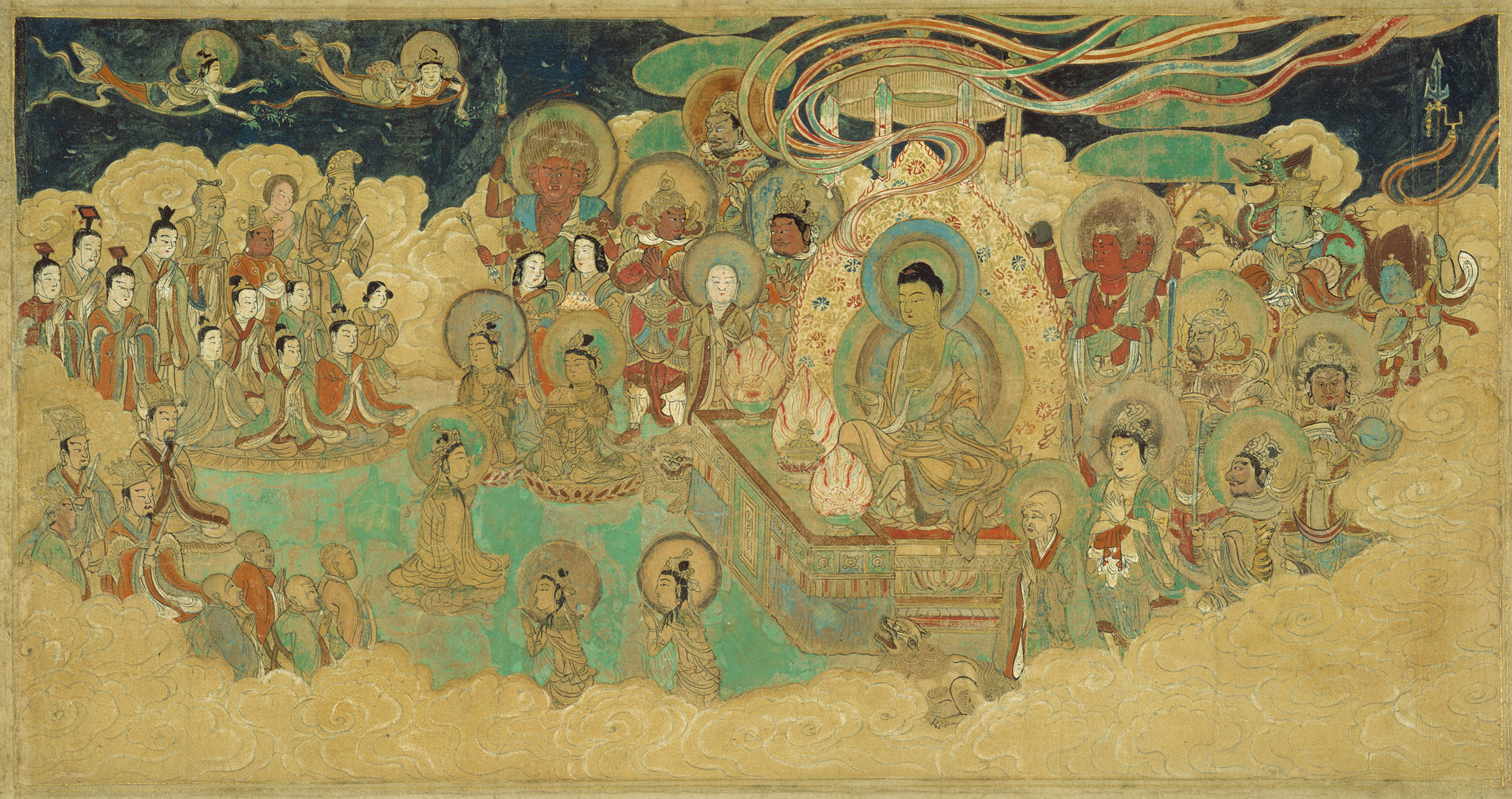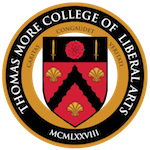
By Sandra Kirby, Class of 2018
“In our time, when day by day mankind is being drawn closer together, and the ties between different peoples are becoming stronger, the Church examines more closely her relationship to non-Christian religions.” –Nostra Aetate, Second Vatican Council, 1965
Every year President and Fellow William Fahey offers a senior seminar, Nostra Aetate, dedicated to the great works of religion and philosophy of the East. Since classes at Thomas More College of Liberal Arts typically focus on the history, philosophy, and traditions of the West, it is important to take the time to understand and appreciate a culture that is not our own, but still very present in the world around us.
As usual, this year the students began by reading Plato’s Euthypro, asking themselves what relationship exists between religion and philosophy, and accompanied this discussion with Nostra Aetate, the Second Vatican Council’s “Declaration on the relation of the Church with non-Christian religions.” The declaration considers “what men have in common and what draws them to fellowship.” The students proceeded to conduct a brief overview of the Roman tradition, looking briefly at Polybius, Cicero, St. Augustine, and St. Justin Martyr among others, examining the definition of religion and its purpose. They also read some modern critics and their various approaches to mystery whether it is something wonderful and sacred as François-René de Chateaubriand claimed, or merely a feeling or state of mind as William James thought.
After refreshing their own tradition in their minds, the class followed Alexander’s course to India. They began by examining Hinduism. Unlike Christianity, there is no official founder of Hinduism, nor any centralized form of structured worship, it is a very decentralized religion. It has three phases: Vedic, Upanishadic, and Bhaktic. The first relies heavily on mythology and song; the second is more philosophical and makes use of dialogue; the third is more personal, allowing everyone a chance to escape the vicious cycle of reincarnation.
The Hindu seeks to escape maya, which is the illusion of the material world that prevents men from realizing that all is Atman, the ultimate reality. If in this life they do not learn to recognize Atman in everything they are subject to samsara, the process of reincarnation, and depending on the quality of their life, must return in better or worse conditions to try again. Their goal is to reach moksha, the final liberation, in which they have realized Atman in everything, shattered the illusion of maya, and become one with Atman.
Next the students embarked upon an investigation of Buddhism. They noted that it was a more personal religion than Hinduism in that it focuses on the self rather than on Atman. In the Indian tradition Buddha is not a god, but merely a great teacher, though the Chinese tradition does deify him. The core of Buddhism relies upon the Four Noble Truths: dukkha, tanha, nibbana, and the Eightfold Path. Dukkha is the reality of suffering; it is caused by desire, hatred, and ignorance. Its remedies are “dana” or generosity, friendliness, and compassion for others. Tanha is attachment to things, our personal existence, and non-existence; it is the source of dukkha. In order to escape suffering, you must become detached. Nibbana (nirvana) is the end result of detachment; it is a state beyond suffering and being. The Eightfold Path is the road away from dukkha through the cessation of tanha towards nibbana. The Path centers around gaining wisdom, ethical living, and meditation.
From Buddhism the students were led to an examination and comparison of Confucianism and Daoism in China. The Confucian is a gentleman; he is refined and performs public actions. There is a focus on ritual and procedures which must be followed, and a striving for superiority with an sense of an overarching, impersonal heaven. Daoism may have been a reaction to Confucianism; it focuses on the ordinary man, not merely the upper class. A farmer can be a fervent Daoist though he takes no part in matter of the State. His is not so much a search for the divine but a harmonious life in nature; it is a simple life that does not look to control nature or others but to exist well within the realm of the changing.
In the following weeks the seniors will read the Koran, investigating the precepts of Islam, and take a look at Eastern Christianity. They will finish by reflecting on the unity of the Catholic Church and various modern expressions of Catholic teaching on other religions, in light of the words of Nostra Aetate: “The Catholic Church rejects nothing that is true and holy in these religions. She regards with sincere reverence those ways of conduct and of life, those precepts and teachings which, though differing in many aspects from the ones she holds and sets forth, nonetheless often reflect a ray of that Truth which enlightens all men.”
For further reading:
Dr. Robert Royal Appointed St. John Henry Newman Visiting Chair in Catholic Studies
